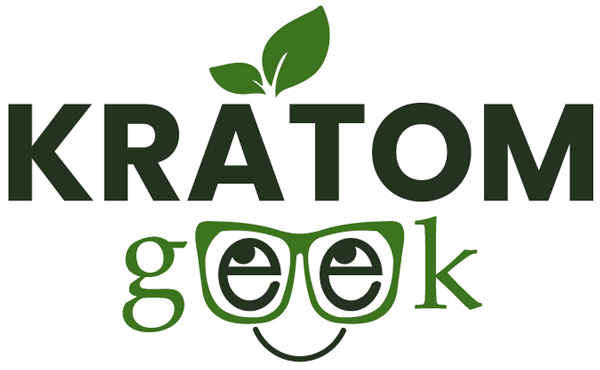There’s no doubt that the vitamins and supplements industry is popular — in 2019 the American Osteopathic Association found that 86% of American adults take some form of vitamin or supplement. But are these supplements effective, and should we really be taking them?
Vitamins and supplements can be a great way to add nutrients to your diet or assist your daily routine and quality of life, but they shouldn’t be used as a complete substitute for anything. To get the most out of them, you’ll want to know how the body processes supplements and who is most likely to benefit from them.
What Are the Benefits of Vitamins?
The right amount of vitamins and minerals can help you feel less fatigued, improve bone density, promote blood cell production and clotting when injured, and even prevent certain diseases caused by vitamin deficiencies, such as scurvy and rickets.
The benefits you may see from taking vitamins can vary based on a lot of different factors. These can include:
- The type of problem you’re trying to manage
- Your diet
- Your age
- Any pre-existing conditions you may have
Dosage also plays a big part in how effective vitamins may be for you. Your ideal dosage will need to be determined by a physician, and based on your diet, other health conditions, and the exact nature of your vitamin deficiency. It is important to consult a medical professional and only take supplementary vitamins when you have a known deficiency of some kind. Vitamin intake in the body is determined by whether the vitamin compound itself is water-soluble — dissolves in water — or fat-soluble — dissolves in fat or oil. The body can easily expel excess water-soluble vitamins through the urinary tract, but fat-soluble vitamins get stored for much longer periods of time, and a build-up of these vitamins can cause vitamin toxicity.
Who Should Take Vitamin Supplements?
Typically, those who need a routine vitamin supplement are:
- People with a vitamin deficiency
- People who need developmental support
- People who have problems retaining vitamins from food
There can be several reasons why you may experience any or all of these conditions. Below are some common groups that fit these categories:
Vegans/Vegetarians
Because of their dietary restrictions, vegans and vegetarians may have some vitamin deficiencies that can affect their energy levels, digestive system, and bone density. Vitamin B-12, Vitamin D, Iodine, Calcium, and Zinc are all recommended vitamins for a meatless diet.
Pregnant Women
Your OBGYN may suggest that you take prenatal vitamins that can support fetal development. Prenatal vitamins often include folic acid, iron, calcium, vitamin D, iodine, and Omega-3s. You may also experience a vitamin deficiency due to changes in digestion, hormones, and food sensitivities.
Seniors
As the body ages, our natural ability to absorb nutrients from foods starts to diminish. This is why many seniors find it worthwhile to take a daily multivitamin. Multivitamins can support a variety of areas, including bone health, vision, the immune system, blood cell production, and antioxidants, which can all be areas of deficiencies for seniors. Some supplements may interfere with medications and certain disease treatments, so make sure you ask your doctor and read your labels carefully before adding a new supplement to your diet.
Vitamins vs. Botanicals and Herbal Supplements
While they both can be described as “supplements” there is a big difference between vitamins and botanicals. Vitamins — things like calcium, vitamin d, zinc — are compounds that we typically find in our food. They can support our nutrition, development, and overall bodily health. Vitamins are an essential part of whole-body health, so when you have a deficiency, taking supplementary vitamins may be essential to restore or preserve wellbeing.
Botanicals and herbal supplements are made of plant matter — usually one type of plant — and are more centered around lifestyle support than dietary support. There is a wide range of botanicals and herbal supplements with beneficial properties, many of which have been used for centuries in traditional medicine, and others which are seeing a renewed popularity. Kratom capsules, for instance, are botanicals that contain a few active properties that may provide relief from symptoms connected to physical discomfort or uneasy feelings, or help to support sleep and restfulness. While they aren’t essential like vitamins, they may provide a temporary benefit when used like a supplement.
Picking the Right Supplement for You
If you don’t have a deficiency in your diet, then it’s likely that you really don’t need to take a vitamin supplement, or that you may not perceive a lot of benefit. Botanical supplements like kratom or CBD, on the other hand, may be able to provide relief for a range of complaints, but these substances and their potential side effects should be carefully considered before you introduce them into your routine. With certain botanical supplements, like kratom, there may be legislation where you live that impacts the legality and criminalization of use and possession, so make sure you’re up to date on the legislation where you live before you buy.
Despite being “healthy,” certain vitamins and botanicals aren’t for everyone. When it comes to picking a vitamin or botanical supplement, the best thing that you can do is have a specific goal or problem that you want the supplement to address, talk to a healthcare professional, do thorough research about the product — because both the vitamin and botanical markets are so large, regulation and quality control can differ widely across products.
Are Supplements Regulated?
One of the areas where vitamins and botanicals are similar is that neither industry has very strict regulation protocols. The FDA is not authorized to review all dietary supplements before they are marketed, which can call product quality, and even safety, into question.
The FDA views it as the job of the manufacturer to take the proper measures to make sure that their products are safe for consumption before they are sold. This can result in some vitamins and supplements being approved by the FDA, and others being endorsed by independent organizations.






